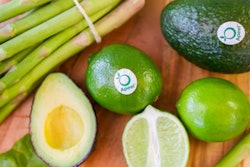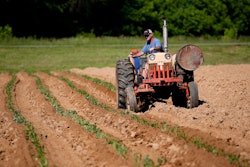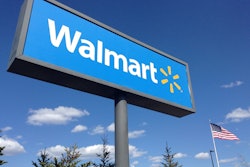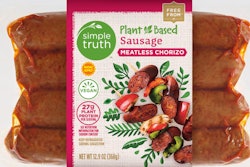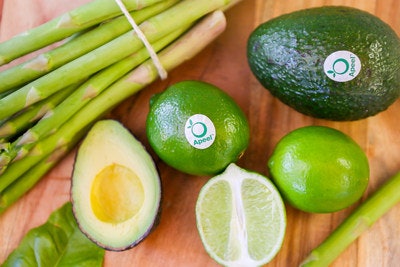
Kroger revealed that Apeel's longer-lasting avocados will be available in more than 1,100 Kroger stores in the U.S. In addition, the company's asparagus and Apeel limes will also be offered through a pilot in its Cincinnati market this fall.
"Kroger is excited to offer more customers Apeel avocados and introduce longer-lasting limes and asparagus, marking another milestone on our journey to achieving our Zero Hunger | Zero Waste vision," said Frank Romero, Kroger's vice president of produce. "Apeel's innovative food-based solution has proven to extend the life of perishable produce, reducing food waste in transport, in our retail stores and in our customers' homes."
Apeel's plant-derived technology provides produce with a little extra "peel" that slows the rate of water loss and oxidation — the primary causes of spoilage.
"Kroger is leading the way to alleviate the food waste crisis at every level, from its supply chain to its retail stores to the homes of over 11 million customers who shop at Kroger every day," said James Rogers, CEO of Apeel Sciences. "We're excited to expand our partnership with Kroger to further prevent food waste while simultaneously giving families more access and time to enjoy healthy fresh produce."
Last year Kroger and Apeel teamed up to reduce category food waste. Apeel avocados, asparagus and limes maintain their just-harvested quality longer than produce without Apeel and are less reliant on refrigeration, reducing food waste and extending customers' access to fresh fruits and vegetables.
Apeel's partnership with Kroger is expected to prevent millions of pieces of produce from ending up in a landfill every year, resulting in:
- Millions of avocados "rescued" from going to waste
- Dozens of acres of farmland preserved
- Emission reductions of thousands of metric tons in greenhouse gases
- Over a billion gallons of water use savings
- 100,000+ GJ of non-renewable energy reductions




